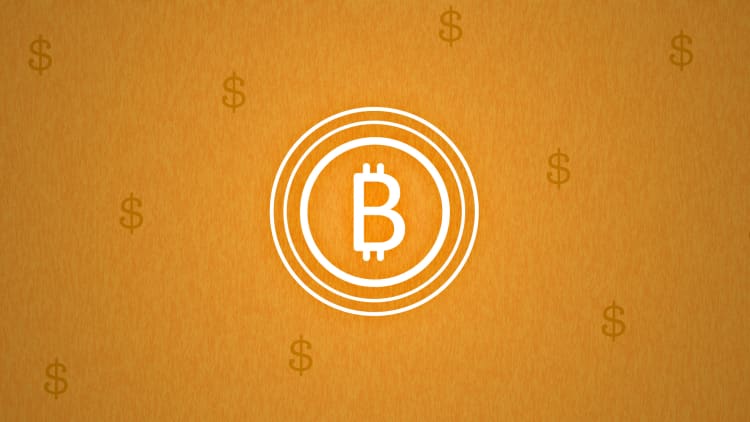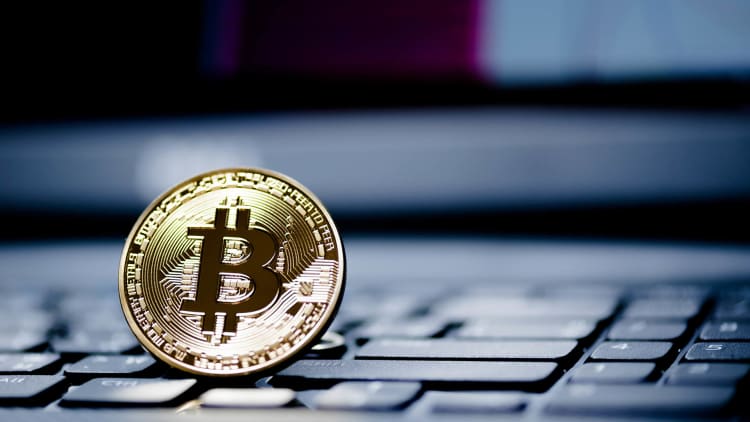
Bitcoin's price has been on a wild ride since its inception. 2017 alone saw massive gains, starting the year at under $1,000 and, at its peak, breaking $19,000, according to industry site CoinDesk.
On Tuesday, it was trading at $11,943, a decline of 12 percent, according to CoinDesk.
As bitcoin's popularity surges and its price rises and falls, more and more people are asking the same question: How does bitcoin, something that's essentially invisible and intangible, have value?
Scarcity and utility
In economics, something has value if it checks the following two boxes: scarcity and utility. Scarcity just means that something has a finite supply. In the case of bitcoin, the cryptocurrency has a set cap of 21 million bitcoins.
Many analysts note that this set cap makes bitcoin more desirable than other assets, even gold. That's because unlike with gold, there's no need to worry about a digital Gold Rush. A treasure trove of bitcoin won't ever be "discovered," causing the crypto's price to crash with an influx in supply.
"There are potentially millions of times more gold underground than actually has been extracted," said Tom Lee, head of research at Fundstrat Global Advisors. Lee was chief equity strategist at J.P. Morgan before co-founding Fundstrat in 2014.
Ben Yu, a blockchain expert living in San Francisco, says technological advances are also making gold easier to mine.
"Today we mine gold at four times the rate that we did just 100 years ago," Yu said.
So if bitcoin has scarcity, what about its utility?
Many believe the cryptocurrency's utility lies in its potential to be a more efficient commodity than we already have. Proponents of bitcoin like it for a number of reasons.
First, bitcoin is decentralized, meaning no government, bank or single person has control over it; it can't be toppled by corruption at the top. It's also trivially divisible, meaning you can buy a small item like a doughnut with it as easily as you can buy a house or even a mansion. And finally, the code it's built on is open source, meaning that it's available for anyone to look at, scrutinize and even modify. This means bitcoin is constantly evolving and improving.
None of those uses is intrinsic, however. And that's a point bitcoin skeptics often make. Gold, for example, is thought to have intrinsic value because of its applications in industries like dentistry and electronics. Some people even argue that dollar bills have intrinsic value, since they can be used as kindling or to write on.
But as you break down either of those claims, it becomes clear that gold and paper money don't have that much intrinsic value either.
According to the World Gold Council, in 2016, only 15 percent of gold was used in industries. The majority went toward making jewelry and gold bars and coins — items that have value mainly because they're trusted to be valuable.
With paper money, the Federal Reserve says it costs about 16 cents to create a $100 bill.
So the rest of that hundred bucks — the remaining $99.84 — comes from the trust people place in it.
It can be hard to see the digital currency as having value because you can't hold it in your hand like you can a dollar bill or gold.
As a solution, Lee said to think of bitcoin as a digital business.
"If you ask a baby boomer, 'Can you justify the value of anything that's a digital business?' they probably don't accept that Facebook, Google, Netflix, Amazon, Apple, these are the largest companies in the S&P 500 and they're primarily digital businesses built almost purely on digital trust," said Lee.
"Anyone who thinks digital gold isn't a store value is overlooking the fact that most businesses today are built around digital trust, including the financial system."
Valuing the cryptocurrency
It's clear that some people believe bitcoin has value. And if it has value, it's hard not to wonder how much a single bitcoin could end up being worth.
There are two main theories being used to calculate the potential value of one bitcoin.
The first theorizes that bitcoin, which some perceive to be a better asset than gold, could end up replacing either a portion of gold or gold entirely.
If it were to replace gold entirely, one bitcoin could be worth $357,000. That's calculated by taking the total value of all the gold ever mined in the world, which is about $7.5 trillion, and dividing that number by 21 million — the total bitcoins that can ever exist.
Lee told CNBC it's more realistic to assume bitcoin will replace 5 percent of gold within five years, making a single coin worth $25,000.
Another theory of Lee's is based on Metcalfe's law, which says that the value of a network is proportional to the square of the number of users on the network.
For example, one phone is useless because you can't call anyone else with it. But the value increases exponentially as other people get phones.
Studies have shown that Metcalfe's law holds true for Facebook using 10 years of data. It also holds true for Tencent, China's largest social media company.
Fundstrat looked at users on the bitcoin network and found that the square of this value explained 94 percent of the variation in bitcoin prices since 2014.
Many people think that bitcoin is a bubble, and that's predicted on the concept that bitcoin has no value. But there's reason to believe that that just isn't true.
By definition, bitcoin is scarce. And the cryptocurrency may have utility as a superior way to store and exchange wealth.
WATCH: Bitcoin's creator may be worth $14 billion



